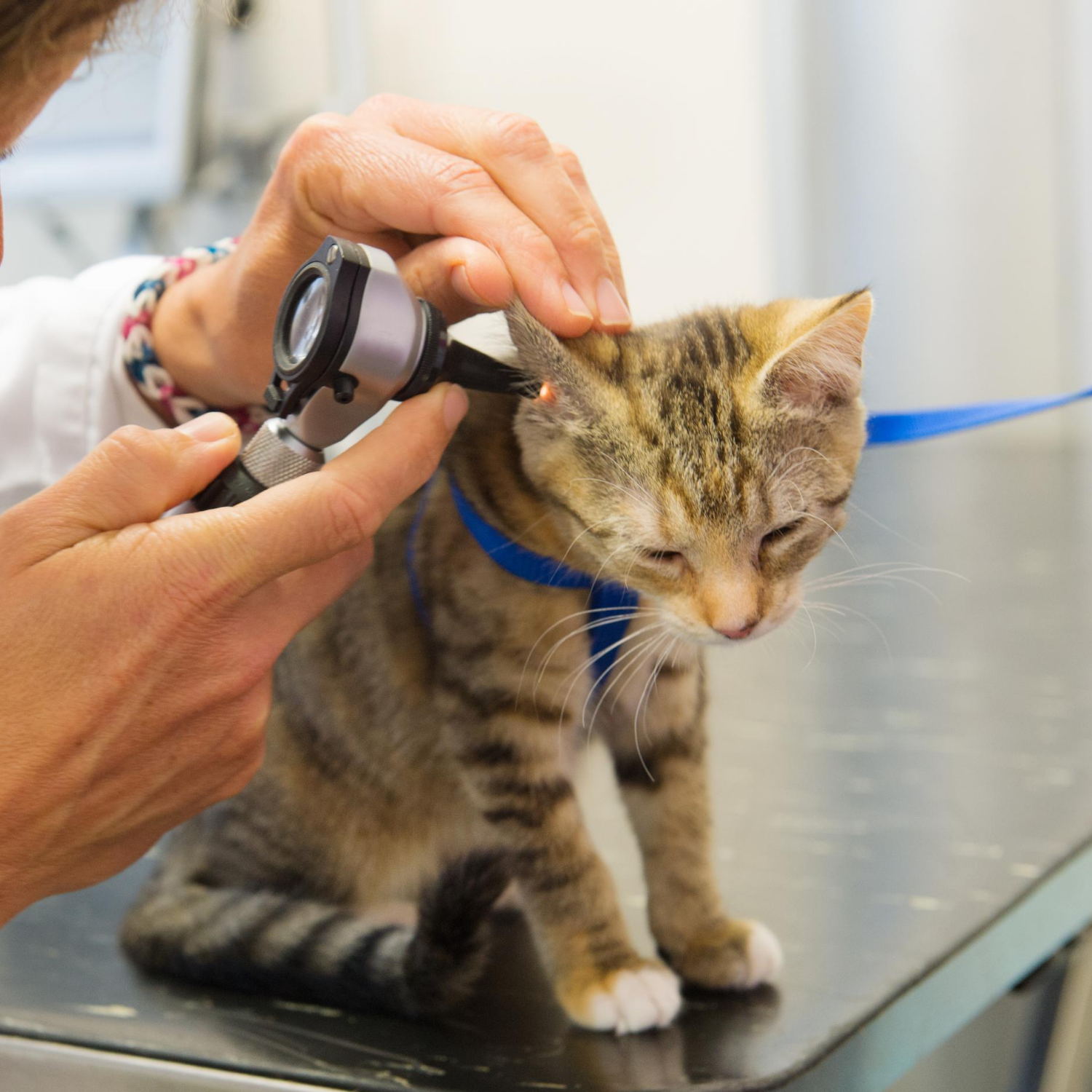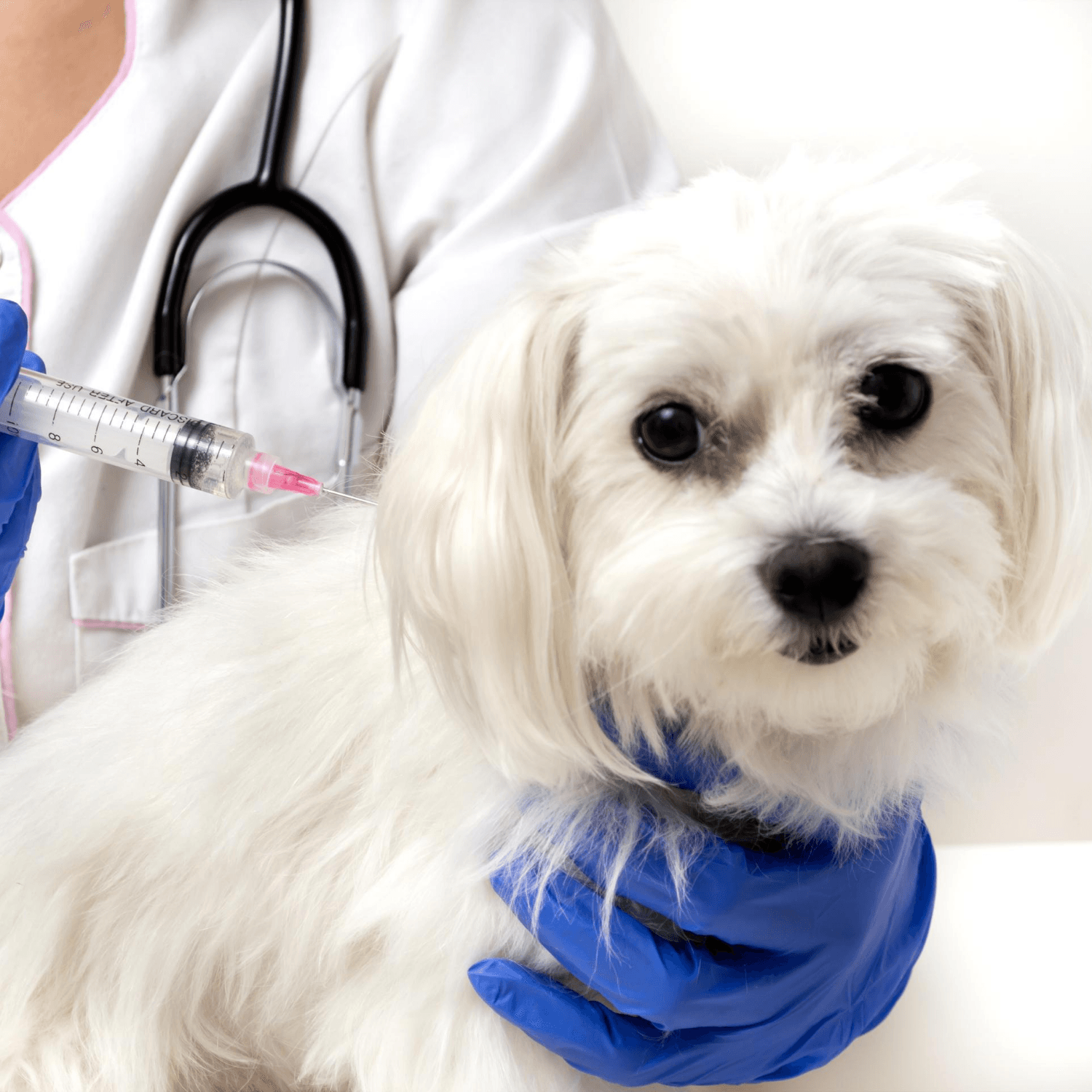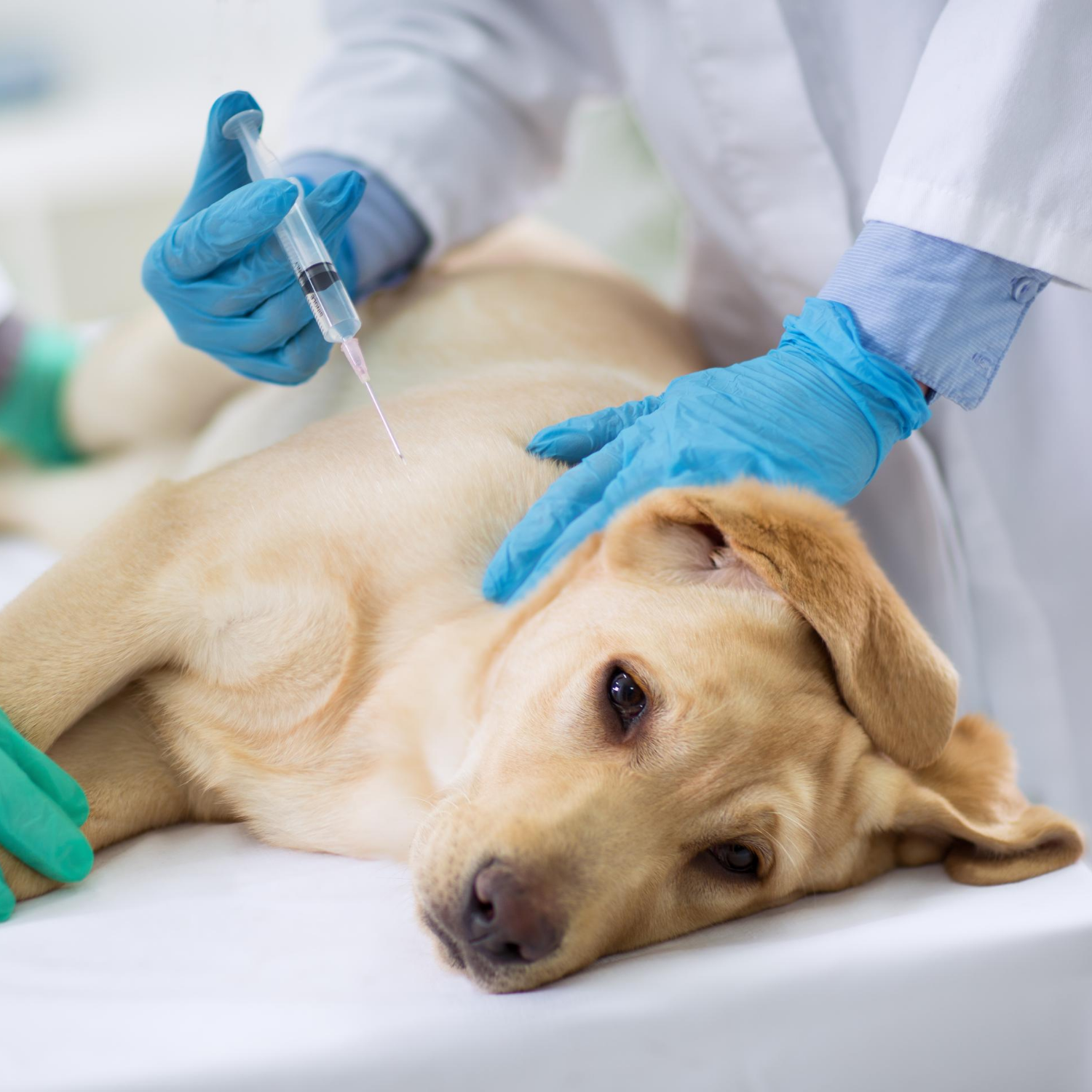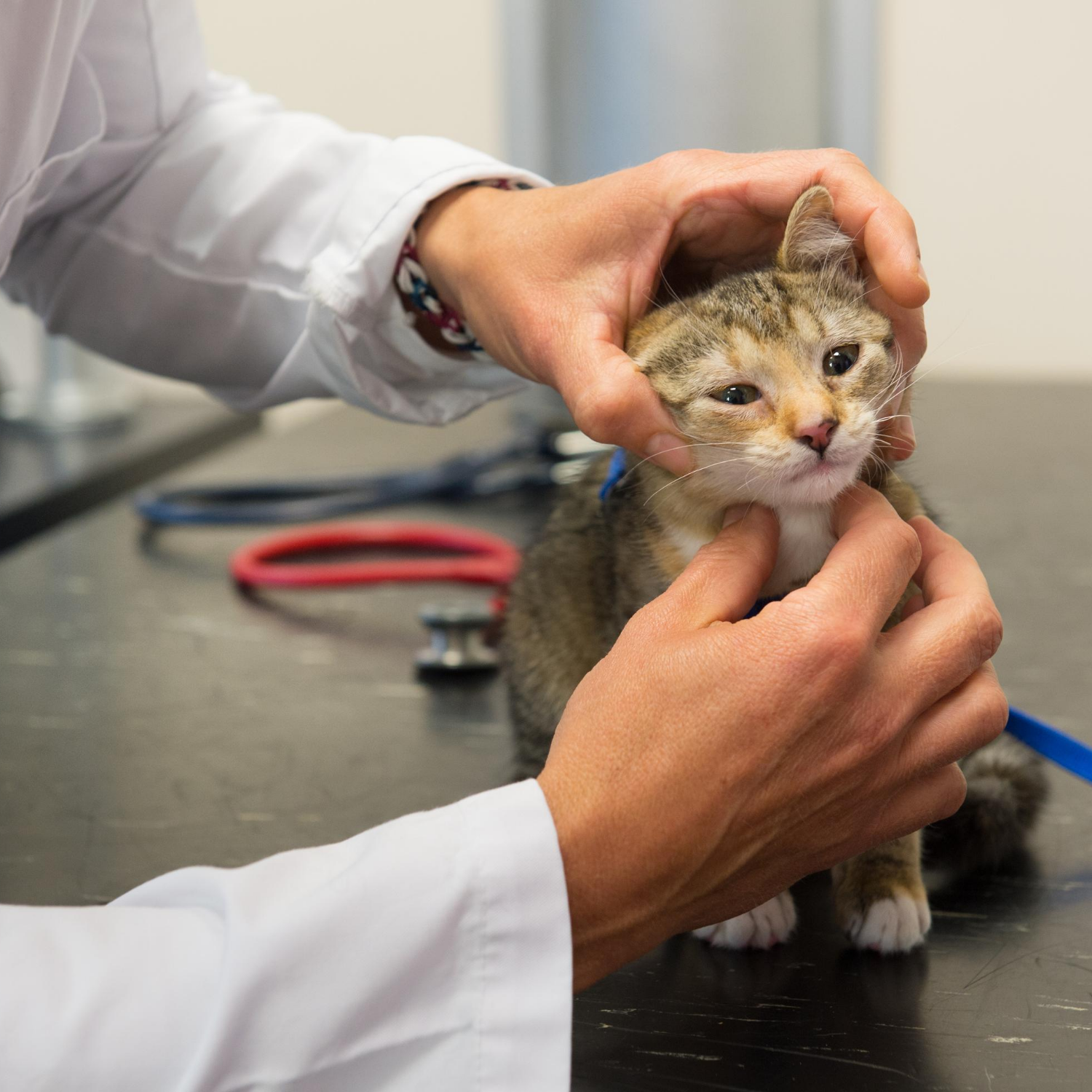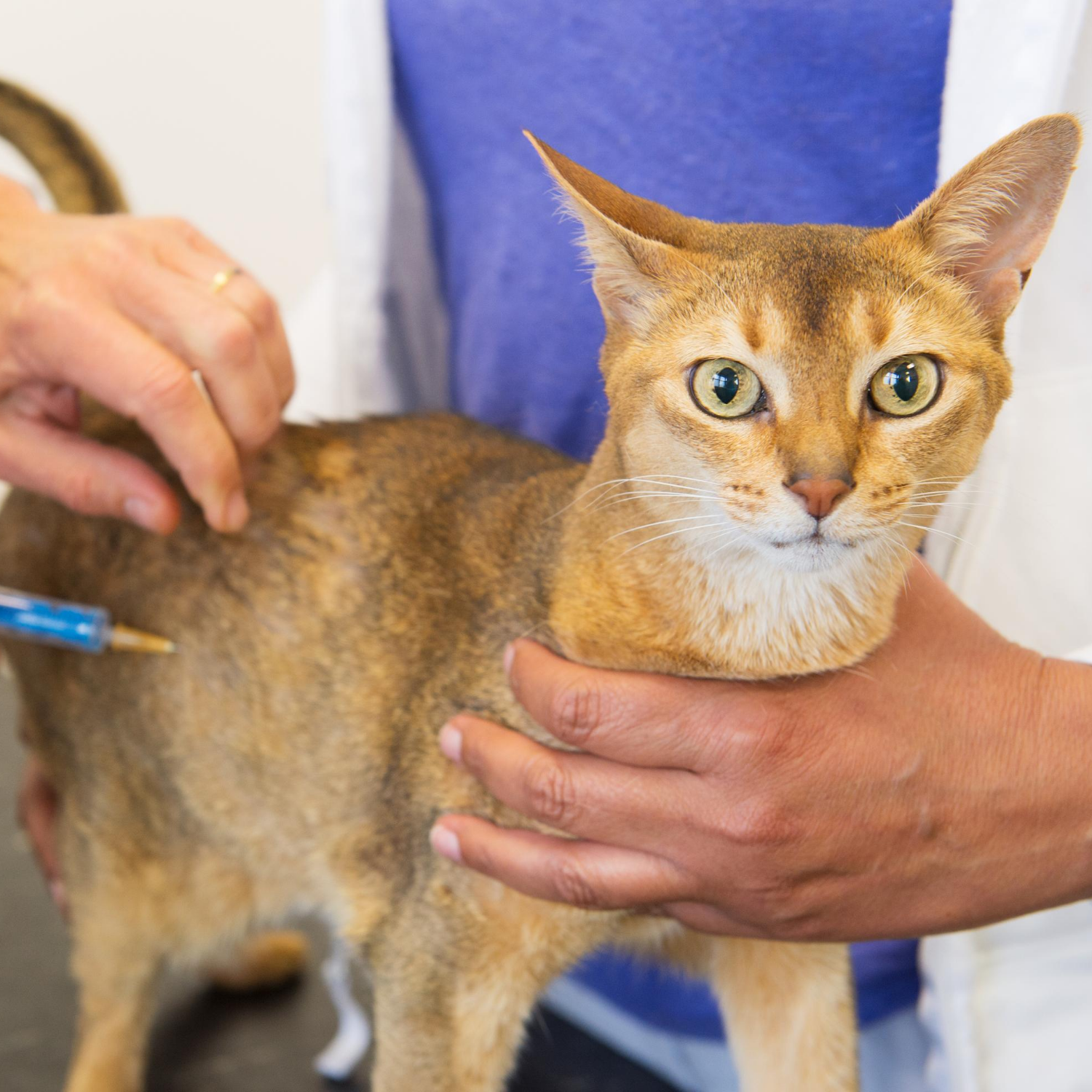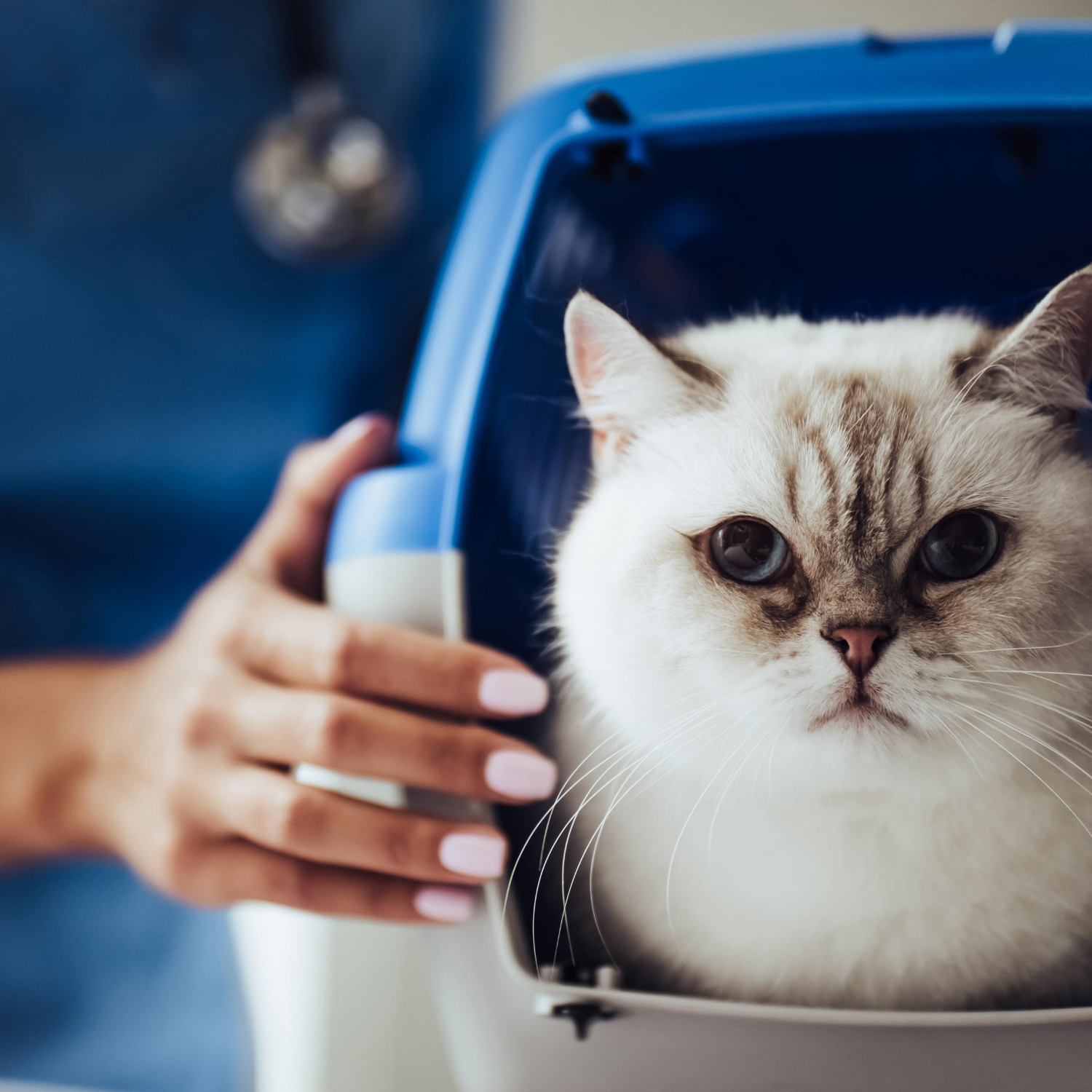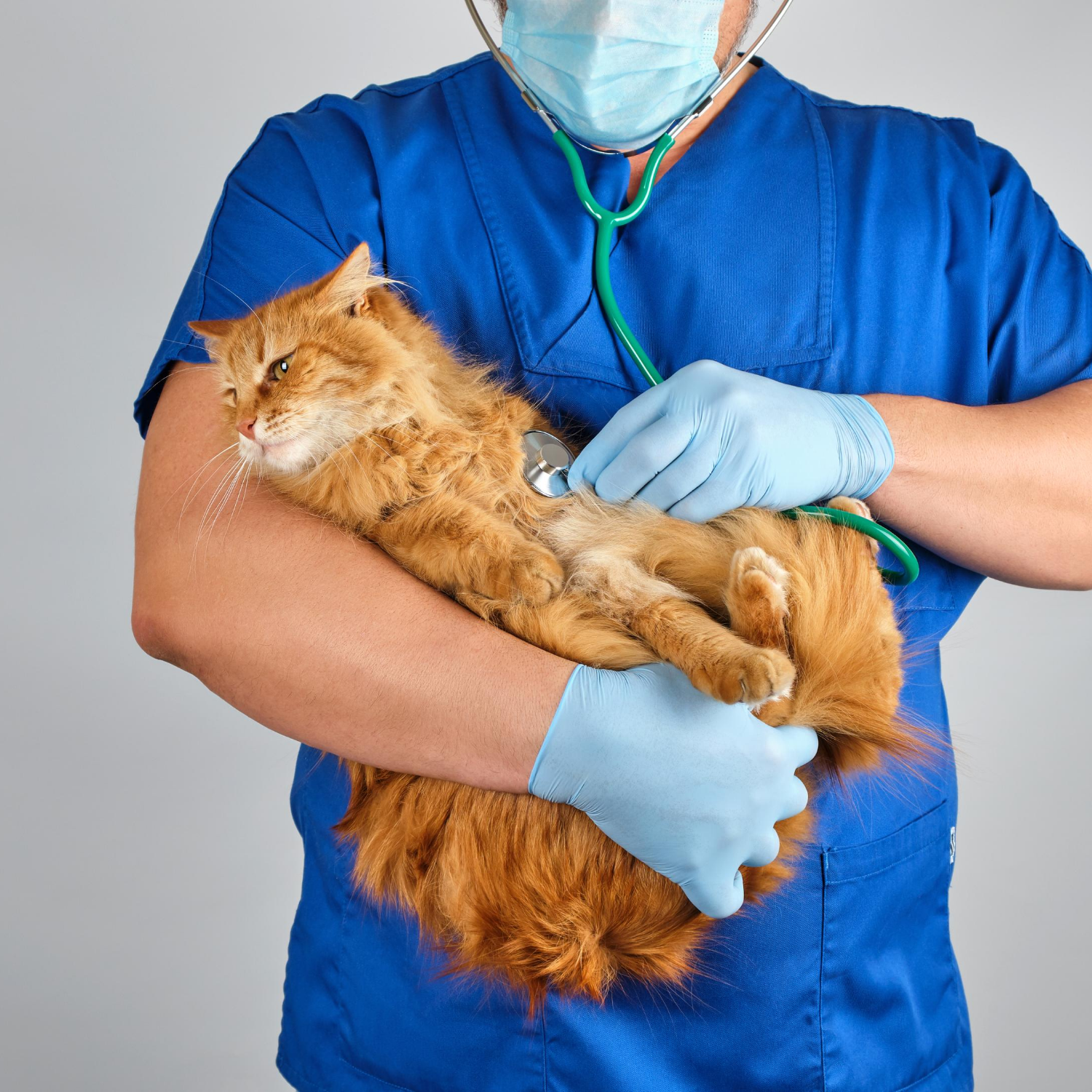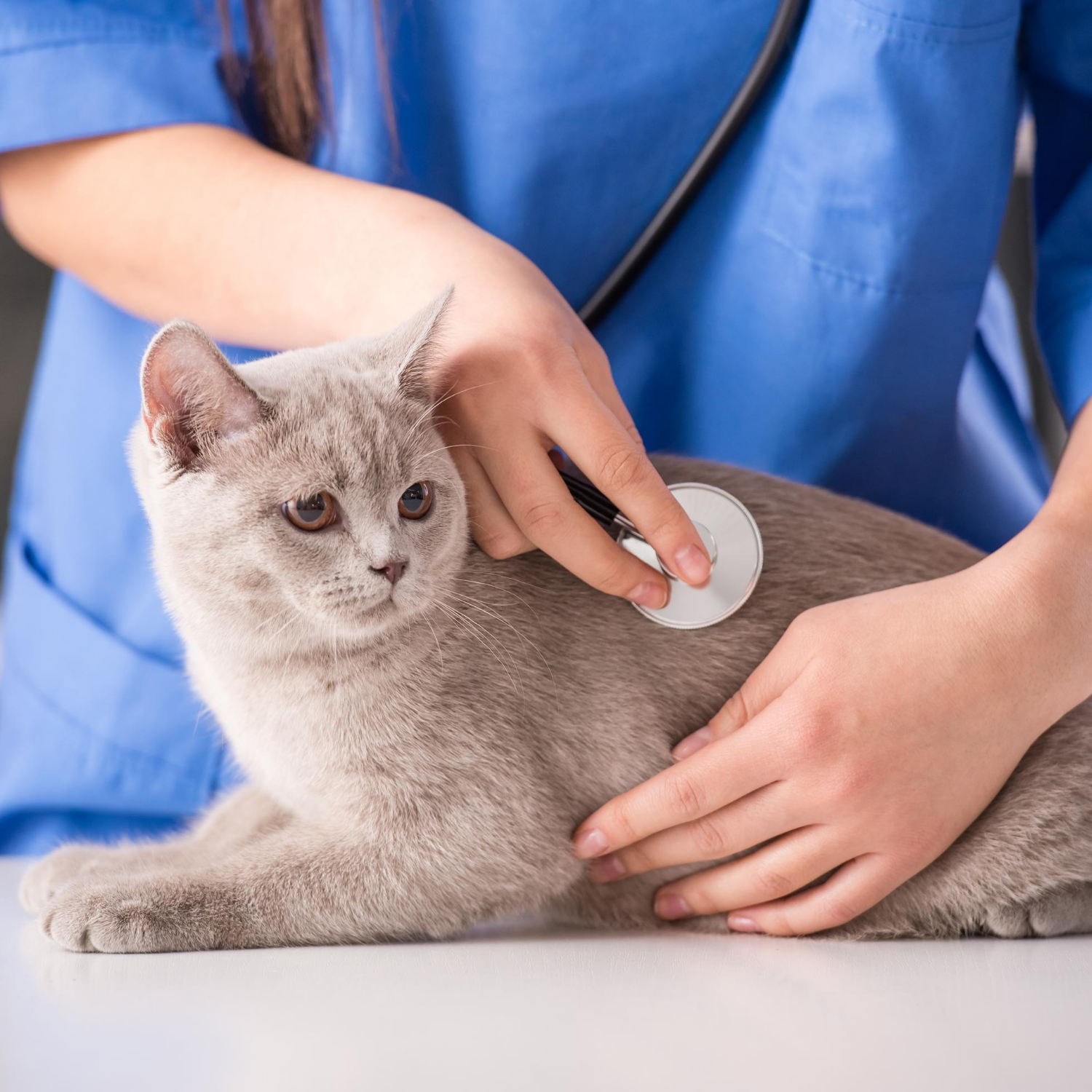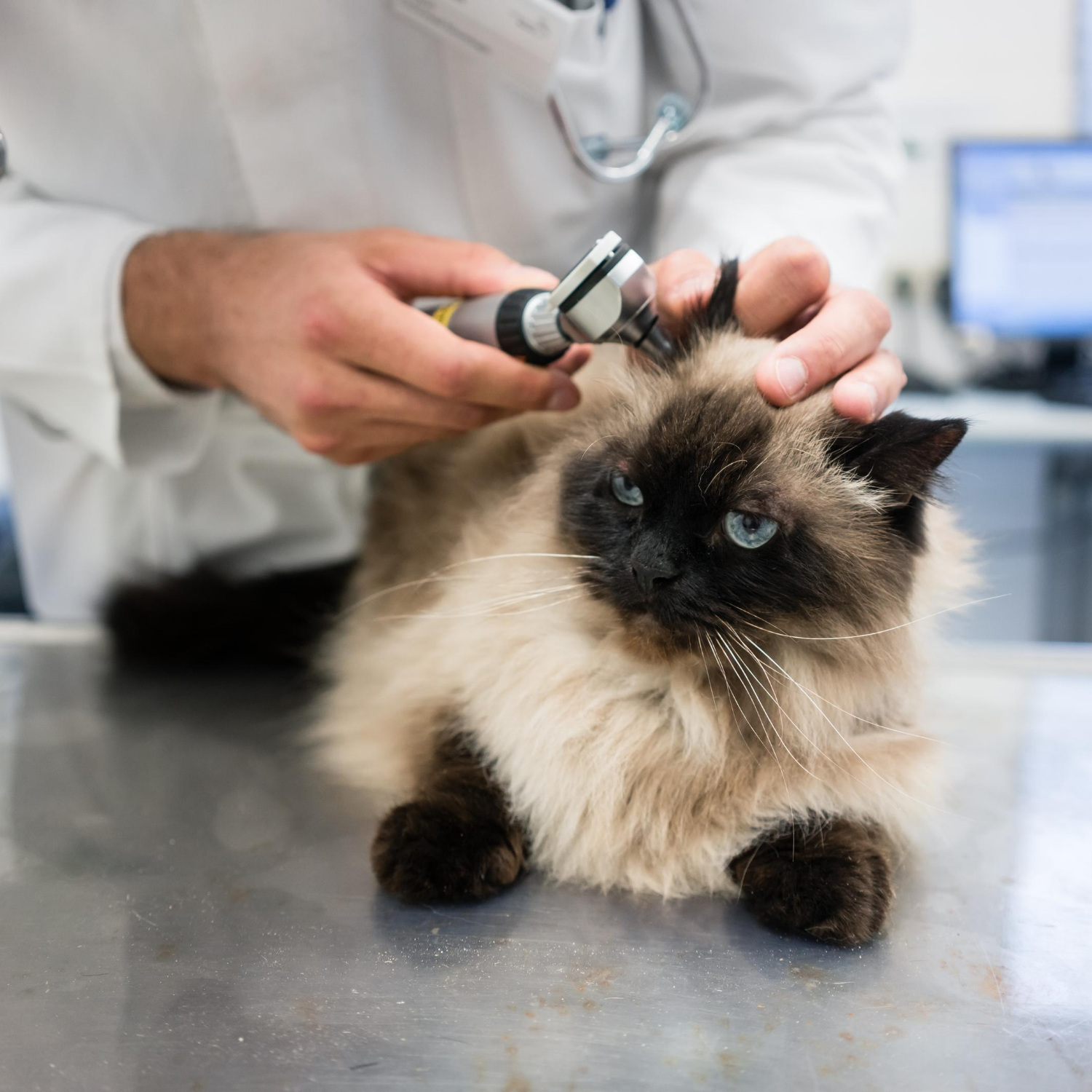A Full Health Checkup for your Pet
What is covered in an Exam? When you come in for a checkup, We perform exam, conduct and evaluate weight and temperature, coat and skin, eyes, ears, teeth, gums and mouth, respiratory system, glands and lymph nodes, heart, abdomen, gastrointestinal system, urinary and reproductive systems, musculoskeletal system, neurological system and their behavior, lymph nodes, vital signs, skin and coat.
Your Veterinarian Will Auscultate
the heart and the lungs, and inspect their posture, muscle condition, hair-coat, skin, eyes, ears, nose, face, mouth and teeth.
Your Veterinarian Will Palpate
The pulse, lymph nodes in the region of the head, neck and hind legs, abdomen to feel the bladder, kidneys, liver, intestines and spleen.
Wellness Screening Tests
Complete blood count (CBC), biochemistry profile, urinalysis and thyroid hormone testing.
Exams and Consultations
Regular wellness exams help your pet become more familiar with our animal hospital, doctors and staff, and that can make life easier for both of you during your pet’s future office visits. At Pasadena Pets Hospital, our goal is to help your pet live a long, healthy, happy life.
-
PREVENTATIVE MEDICINE
Button- Vaccinations & Infectious Disease Control
- Flea, Tick, and Heartworm Prevention
- Parasite Control
- Health Certificates for travel
- HomeAgain Microchipping
- Weight Management and Nutrition
- Comprehensive Wellness Exams
- Behavioral Treatment including stress and anxiety
-
DIAGNOSTICS
Button- Wellness and Early Detection Blood Panels
- Fecal Parasite and Heartworm Testing
- Vaccine Titers including Rabies Export FAVN for international travel
- Microbiology including Culture/Sensitivity
- Ear/Skin Cytology
- Tissue Biopsy
- 100% Digitial Radiographs (X-Rays)
-
MEDICINE
Button- Neurology
- Endocrinology/Autoimmune Diseases
- Dermatology including allergies
- Ophthalmology
- Emergency/Critical Care
- Cardiology
- Internal Medicine
Wellness Care

